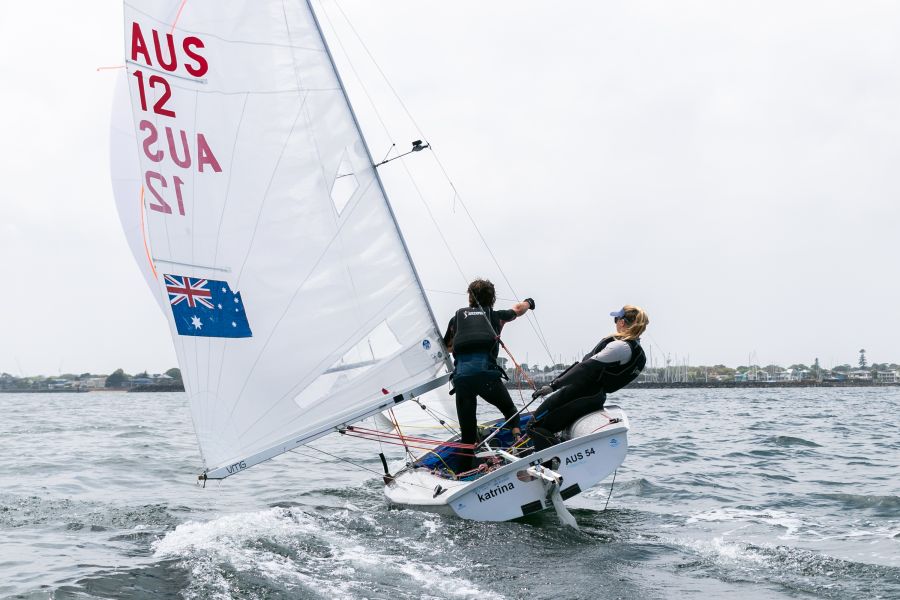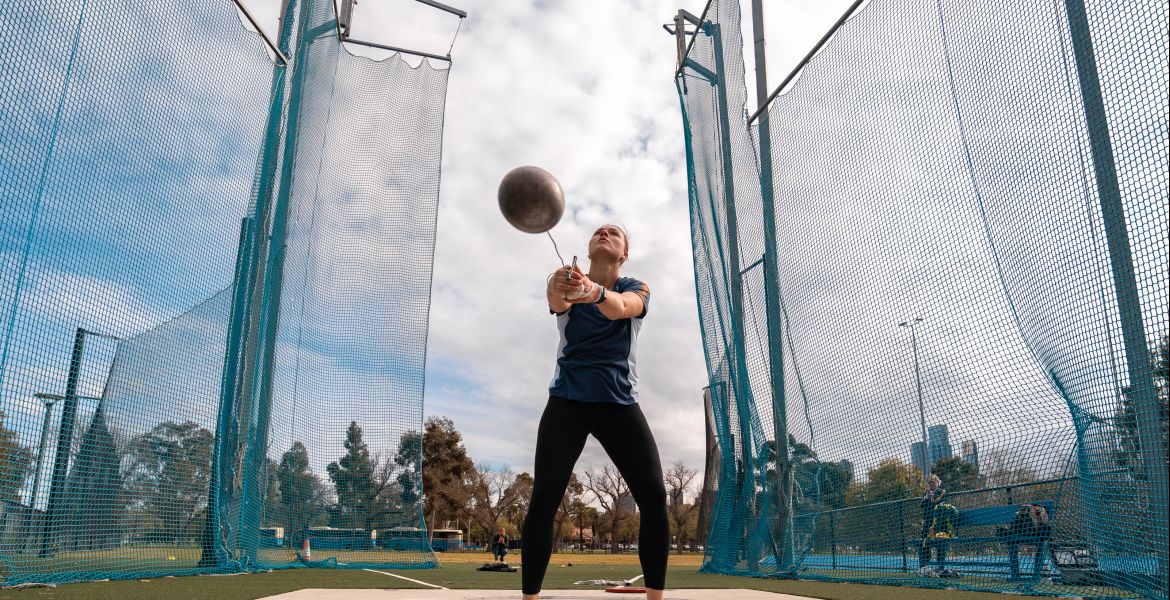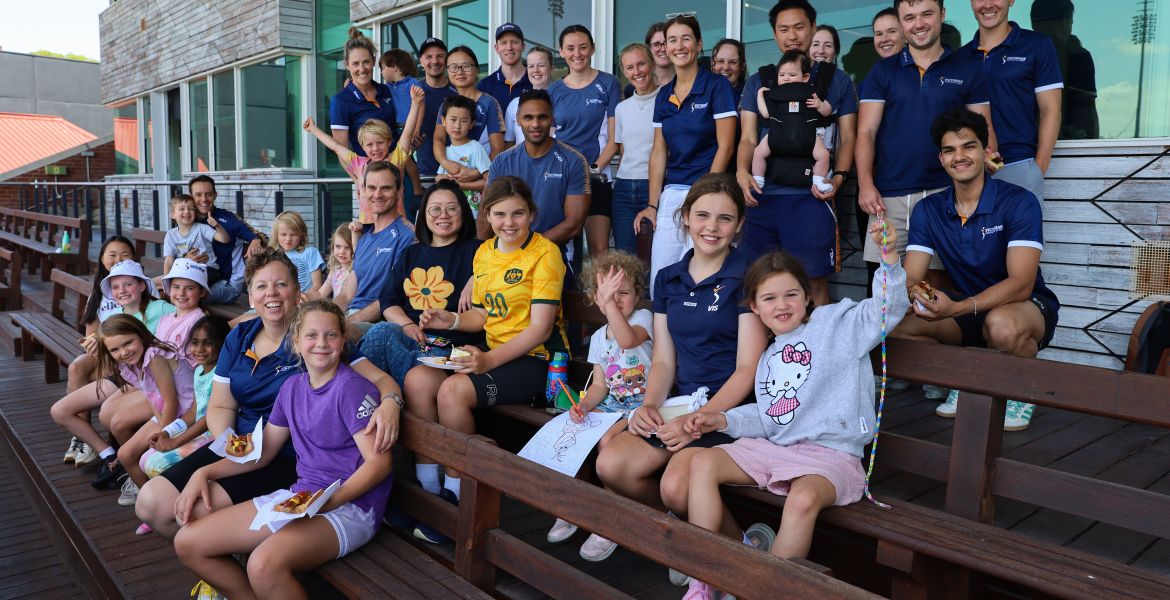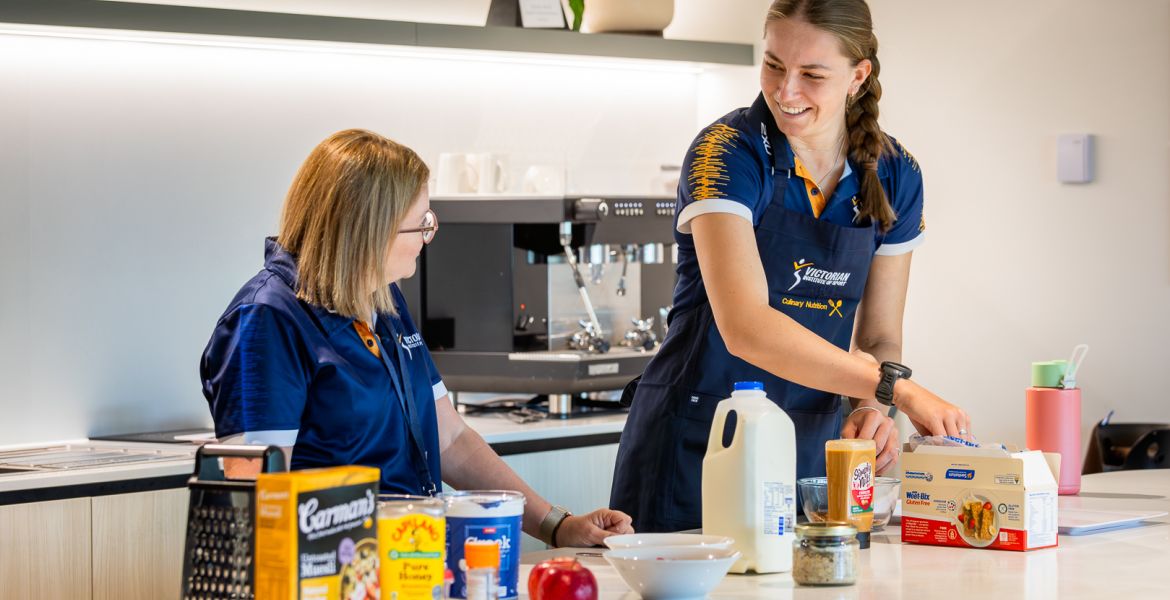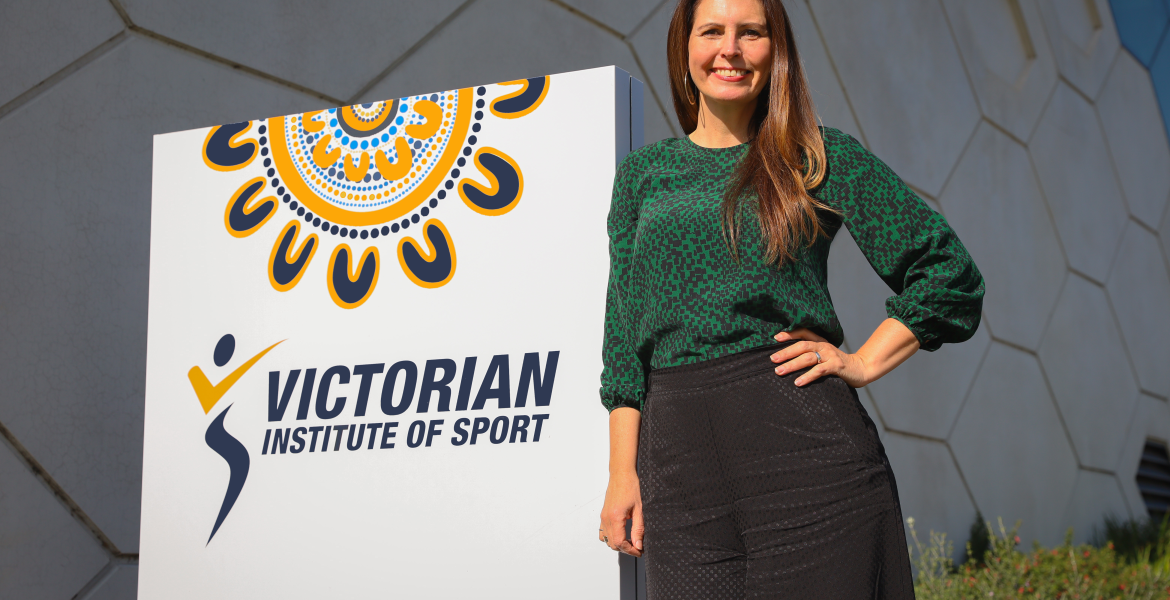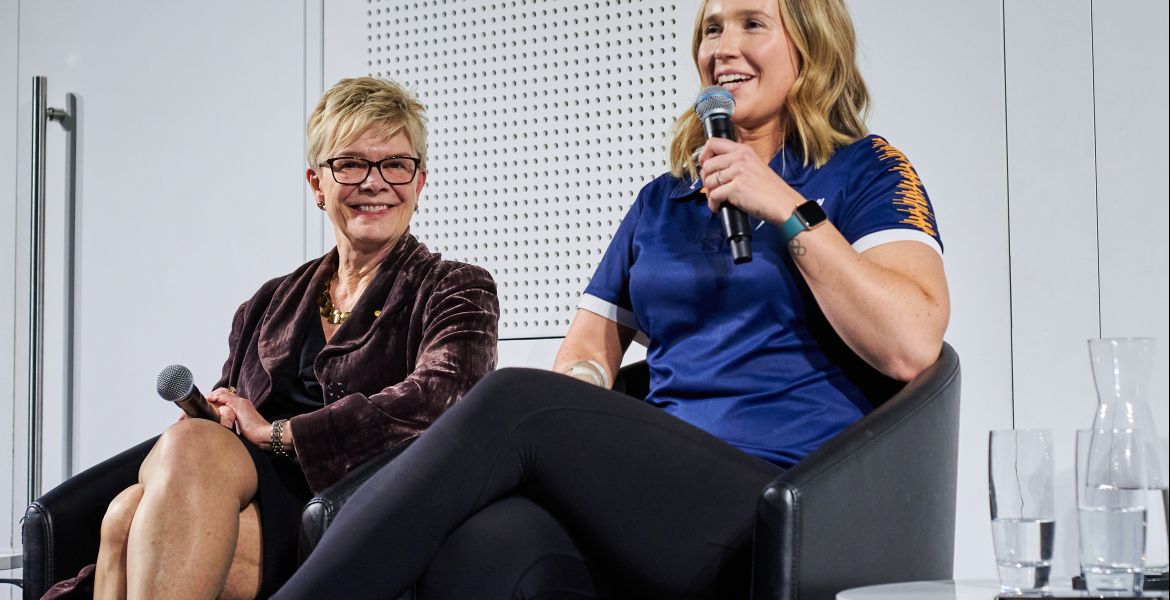The Victorian Institute of Sport (VIS) sailing staff are enjoying greater productivity and efficiency within their kite-foiling and iQFoil training programs, following a successful cross-training camp to Surfing Australia’s headquarters last November.
Less than 1 year out from both disciplines official debuts at the 2024 Olympic Games in Paris, VIS Sailing Head Coach, Carrie Smith, said the team had to look at new ways of advancing the “traditionally” oriented sailing programs to match ‘foiling’s’ unique demands.
“The sport [of sailing] is evolving so we need to evolve with it,” said Smith.
Unlike traditional sailing, kite-foiling and iQFoil utilise a foil board that is similar to those used in traditional windsurfing and kiteboarding, but with a longer hydro foil fin that allows the rider to sit above the water’s surface where they are propelled by either a kite or wind sail.
Less drag through the water allows for greater manoeuvrability, which Smith says, increases the riders speed as well as their risk of injury.
Currently, the VIS sailing team has four ‘foilers’ enrolled on scholarships; 3 in iQ and one in kite-foil.
To combat this increased risk, the VIS sailing staff headed north for a 3-day training camp to Surfing Australia’s purpose-built facilities in Casuarina on the New South Wales north coast, hoping to reduce the number of training days lost to injury and unfavourable weather conditions.
“We lost 50 days due to concussion last year across various classes, the first time we’ve ever lost that many days in sailing,” said Smith.
In a year fraught by poor weather conditions, a training report undertaken by the VIS found that 33% of sailing team injuries had occurred on days of excessive winds that were 25 knots (46kp/h) or more.
Smith said that finding alternative land-based training measures that could be undertaken on days when weather conditions were poor was key to minimising injuries and maximising training days.
“A big part of the training camp was to explore the potential of sending our athletes to a different environment to learn the benefits of cross training, but also for them to gain confidence and to enhance their sailing capabilities with new training techniques that don’t rely solely on the weather and wind.”
“There’s a lot of cross over with surfing as a water sport [that faces] similar environmental limitations, which is why we chose it,” said Smith.
The teams experimental training programs aimed to incorporate new techniques utilised by the Surfing Australia team, such as surf-skating. Similar to skateboarding, surf-skating involves a skateboard but with bigger wheels and a bigger front truck that simulates surfing on dry land.
Pumping, the act of creating momentum through the body that generates speed, as well as balancing, are important principles of foiling, and can be replicated on land through surf-skating.
Since visiting Surfing Australia’s facilities, the VIS team have invested in their own surf-skateboards, which Smith said have proven useful for teaching “balance, agility and quick feet” on days where training can’t be carried out on water.
Additionally, utilising Surfing Australia’s trampoline and air bag facilities as a means of practicing safe landings to protect athletes from concussions also proved insightful.
Since visiting the facility, Smith said the sailing team have also incorporated regular trips to indoor trampoline park, Bounce, twice a month.
“They’ve been really great for teaching soft landings and spatial awareness, particularly when athletes are fatigued, and the chances of making a mistake are much higher.”
The sailing team are also looking to collaborate with the VIS judo and taekwondo teams as other potential cross-disciplinary approaches to improving soft landing training.
Above all, Smith said that cross training with Surfing Australia had proven the sailing team could try different approaches to training utilised by other sports, with the potential to reap huge benefits for its athletes.
‚ÄúCross training tools are about trial and error…for athletes it means building independence and trusting that they can push themselves.‚Äù
The trip to Surfing Australia’s headquarters was made possible by the VIS’ Innovation project, which makes it possible for sports programs to trial new ideas aimed at improving efficiency, support and/or processes across the VIS.
The VIS is committed to providing funding and resources directed towards innovation and research, offering an unprecedented opportunity to drive high performance outcomes and keep Victorian athletes ahead of the game.

